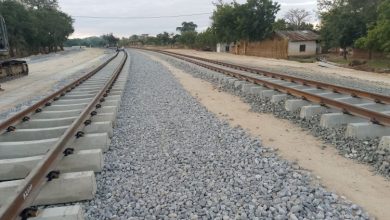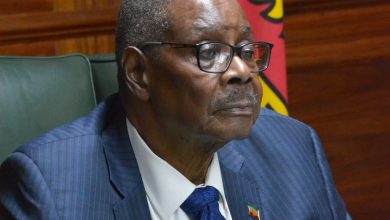Girl who beat abortionlaws demands more
A minor who won a landmark case challenging Malawi’s restrictive abortion laws has turned her attention to the newly elected Parliament, demanding systemic reform for the vulnerable.
“Make laws that protect the poor and ensure they work,” said the 16-year-old survivor of sexual assault, known by the pseudonym Alinafe. Though too young to vote, the pastor’s daughter has already achieved what successive parliaments feared to touch for 61 years of self-rule: she expanded the legal right to safe abortion.
Alinafe, who was defiled by a jailed neighbour four times her age, successfully swayed the High Court to rule that a sexual assault survivor has “a right to seek safe abortion automatically” from public and private hospitals, citing Section 19 of the Gender Equality Act of 2013.
The ruling, delivered by Judge Mike Tembo as new MPs were swearing in on Tuesday, effectively creates a crucial exception to the restrictive law made by an all-male British Parliament in 1861.
The colonial-era law, which arrived in Malawi in 1925, permits abortion only to save a woman’s life and prescribes up to 14 years imprisonment for conducting an illegal procedure.
Healthcare workers and campaigners say this gag law fuels secret, dangerous abortions conducted by unskilled hands using wires, herbs, and other life-threatening methods.
According to the Ministry of Health, abortions conducted outside clinics cause up to 18 percent of pregnancy-related deaths, making it one of the top five threats to safe motherhood.
Despite the obvious public health risk, Malawian lawmakers have consistently ignored recommendations for reform.
A 2015 study found that one in every six pregnancies ends in abortion, meaning approximately 141 000 abortions were performed that year.
Lead researcher Dr. Chisale Mhango noted: “Restrictive laws or religious sermons cannot stop a woman from ending an unwanted pregnancy, but push her into deadly backstreet abortions.”
Alinafe’s litigation began after she and her mother endured a K15 000 motorbike trip to the Chileka Health Centre seeking a safe termination of the ‘unwanted fruit of sexual violence.’
However, clinician Jenala Solomon sent them back, fearing the possible 14-year prison sentence.
Alinafe sued the clinician, the Ministry of Health and the Attorney General.
Weeks later, a doctor at Queen Elizabeth Central Hospital in Blantyre granted their wish, deeming the then 13-year-old too young, traumatised and ill to give birth safely.
Judge Tembo was unequivocal in his ruling, stating: “It is harsh and inhumane to insist that such a girl keep the pregnancy in such circumstances.” The court granted all her wishes, including K3 million in compensation.
Looking back, Alinafe, who was being interviwed in the presence of her parents, said her legal action was driven by institutional failure: “I went to court because government officials let me down. They say it’s a crime to marry or have sex with a girl under 18, but I’ve lost count of my married peers. Am I old enough to become a mother?”
Alinafe’s victory has been hailed as a “wake-up call for lawmakers”. Her head teacher lamented that the sexual violence has disrupted her learning since Standard Four, forcing her to repeat Standard Seven.
“I hope the judgement will give her peace of mind and liberate girls from quitting school due to early pregnancies and marriages—the neglected sexual violence which endangers children’s mental health, learning and futures,” the head teacher said.
Alinafe’s father, a charcoal seller and pastor, powerfully condemned the legislative inertia: “Laws should move with time. If they don’t promote our well-being, change them. Sadly, we keep changing lawmakers, not laws that oppress us. Our MPs just go to Parliament to warm their seats and enrich themselves, not to make laws better.”
The ruling gives activists renewed leverage to push for the Termination of Pregnancy Bill, which was based on the Law Commission’s 2015 recommendations. The proposed Bill would allow terminations in cases of rape, defilement, mental health concerns, or severe fetal malformation.
Former Parliamentary Committee on Health chairperson Mathews Ngwale, who was taunted as “Mr. Abortion” for petitioning the House on the issue, welcomed the judgment. Ngwale noted that he was voted out of Parliament alongside 64 percent of his cohort—including those who jeered him.
“The girl’s victory marks a huge step for everyone fighting for the laws of Malawi to provide more rights for women and girls,” Ngwale said.
He added: “If I were still in Parliament, I was going to say now the road is clear and it’s up to the current MPs to incorporate what the judge has ruled.”
Emma Kaliya, who leads the Coalition for the Prevention of Unsafe Abortion, said the ruling vindicates unheeded voices for law reform. “Parliamentarians and their political masters are afraid of religious leaders. I hope the youthful Parliament will think deeper and do the right thing,” she urged.
MHRC chairperson Chikondi Chijozi confirmed the constitutional rights watchdog takes the court decision seriously and will improve the implementation of gender and sexual and reproductive health rights (SRHR) laws.
Alinafe’s lawyer, Godfrey Kangaude of the Nyale Institute, summarised the institutional failure: “The girl’s words pierced my heart. I didn’t realise she had silently carried the weight of this struggle until the end. No child should ever endure such pain. We claim to protect our children through many laws—but do we, really?
See more on our centrespread.





